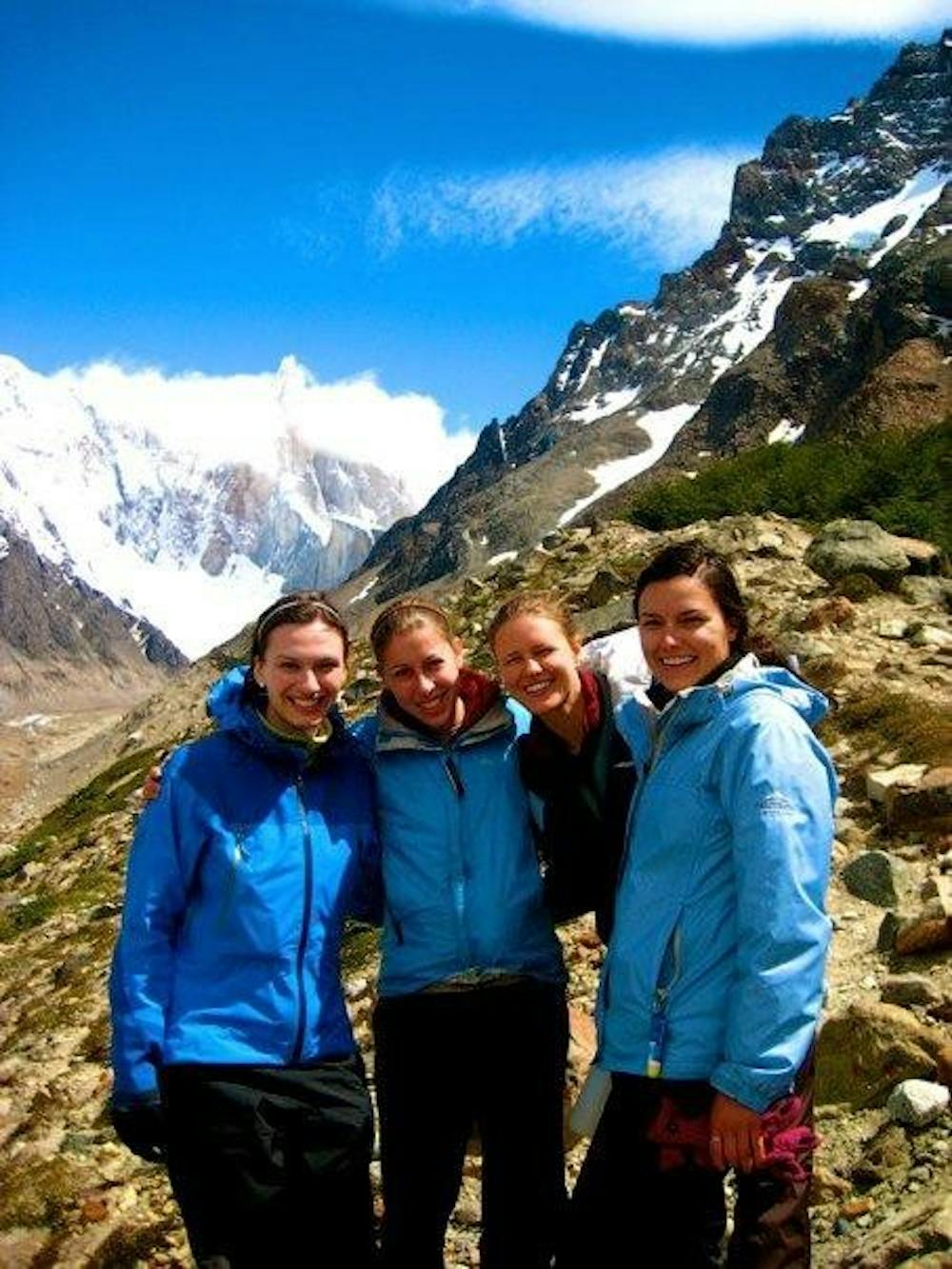
Honors 281 students backpack through the Argentinean Mountains (Mark Freidline)
A group of Miami University honors students will be taking their learning experiences far outside the classroom this winter term with a 10-day backpacking trip through rural Argentina. The two credit hour course, HON 281: Outdoor Leadership in Argentina, requires students to meet once a week during the fall semester to prepare for the trip over the winter term.
According to former instructor Mark Freidline, the class was first offered in 2009 as an option to satisfy new honors requirements. At the time, the course was co-taught by Freidline and Mike Maxam, who currently teaches the course. The goal is to teach leadership and basic outdoor skills.
"We want to focus on leadership, and the outdoors is a means to do that," Freidline said.
Students first stop at a large city, which will be Mendoza this year, to learn about Argentinean culture. Most of the students will have to overcome a language barrier and cultural differences during those first few days.
Miami sophomore Rachael White expressed excitement about this part of the trip.
"I hope to get out of my comfort zone and try something new," she said.
Argentina's leisurely, family oriented culture contrasts America's fast-paced, more distant culture, Maxam said.
"In Argentina, they like to sit around, just enjoy peoples' company and talk," said Maxam. "It kind of takes all the crazy things students have going on and shrinks it down to your bare necessities. It puts things in perspective. You really understand what you need and what's important in your life."
The second and longest part of the trip is the backpacking portion, which usually takes place in a remote location. This year, students will backpack in the Patagonia region. During class time at Miami, students learn how to use harnesses, about mountaineering and how to take safety precautions for that portion of the trip. They look at possible dangers in case studies and discuss the solutions.
Despite these preparations, things can still go wrong, Maxam said. A student fell ill on a past trip due to a pre-existing medical condition. Her trip to the hospital took a 12 hour hike and a four hour drive because they were in a remote location.
Enjoy what you're reading?
Signup for our newsletter
"We use those [case studies] as a discussion piece to learn that it's beautiful in the mountains, it's going to be a fun trip and there's lots of great things to see," Maxam said. "But, yes, there's a very realistic side we need to prepare for."
Everyday things can be more dangerous as well, simply due to the outdoor environment. When students are hours or even days away from the nearest hospital, the instructors are very concerned about safety.
"One of the most dangerous things in the backcountry is cooking because it's not in a controlled environment," Freidline said. "If the stove is on a wobbly rock, it can tip over and burn you."
White said that the backpacking portion of the trip is what she is most nervous about.
"I've never done anything like this," White said. "But [Maxam] seems like a good leader."




